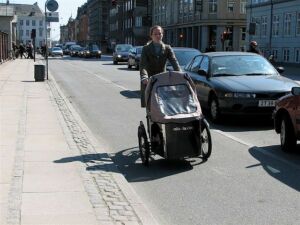News
Longer work commute hurting Danish families with children
This article is more than 9 years old.
More time in the car means less quality time at home, says think-tank

Long commutes are impacting on family time, says think-tank (photo: Elizabeth Lloyd )
The daily trip to and from work is getting longer, and that is a burden on families with children, says researchers from the think-tank Cura.
New figures from the regional government organisation Danske Regioner reveal that the average commuting distance is increasing throughout the country – except in Copenhagen, where it has fallen slightly.
Damn this traffic jam
Zealanders living outside Copenhagen have the longest trips, logging 65 kilometres each day.
Cura head Karen Lumholt said that a longer commute means less time for family and children.
“We are seeing record-high divorce rates and stress that develops into depression and anxiety,” Lumholt told DR Nyheder. “It is very expensive when a society’s basic unit, the family, does not work well.”
Day care daze
Lumholt said that longer working hours mean that children spend more hours in daycare institutions, which is bad for both them and their parents.
READ MORE: Danes commuting further than ever
“Childcare institutions have deteriorated in recent years,” said Lumholt.
“Parents know that they are not up to speed when they drop their children off in the morning, and that stresses them.”










































